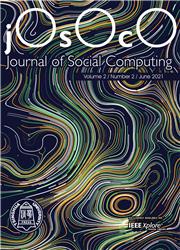How We Will Discover Sentience in AI
引用次数: 0
Abstract
This paper explores the question of how we can know if Artificial Intelligence (AI) systems have become or are becoming sentient. After an overview of some arguments regarding AI sentience, it proceeds to an outline of the notion of negation in the philosophy of Josiah Royce, which is then applied to the arguments already presented. Royce's notion of the primitive dyadic and symmetric negation relation is shown to bypass such arguments. The negation relation and its expansion into higher types of order are then considered with regard to how, in small variations of active negation, they would disclose sentience in AI systems. Finally, I argue that the much-hyped arguments and apocalyptic speculations regarding Artificial General Intelligence (AGI) takeover and similar scenarios, abetted by the notion of unlimited data, are based on a fundamental misunderstanding of how entities engage their experience. Namely, limitation, proceeding from the symmetric negation relation, expands outward into higher types of order in polyadic relations, wherein the entity self-limits and creatively moves toward uniqueness.我们将如何发现人工智能的感知能力
本文探讨了我们如何才能知道人工智能(AI)系统是否已经或正在变得有知觉这一问题。在概述了有关人工智能智商的一些论点后,本文接着概述了约西亚-罗伊斯哲学中的否定概念,然后将其应用于已提出的论点。罗伊斯的原始二元对称否定关系概念被证明可以绕过这些论证。然后,我考虑了否定关系及其向更高秩序类型的扩展,以及在主动否定的微小变化中,它们将如何揭示人工智能系统中的智性。最后,我认为,在无限数据概念的怂恿下,关于人工通用智能(AGI)接管和类似情况的大肆渲染的论点和世界末日般的猜测,是基于对实体如何参与其经验的根本误解。也就是说,限制从对称的否定关系出发,向外扩展到多元关系中更高类型的秩序,在这种关系中,实体自我限制并创造性地走向独特性。
本文章由计算机程序翻译,如有差异,请以英文原文为准。
求助全文
约1分钟内获得全文
求助全文

 求助内容:
求助内容: 应助结果提醒方式:
应助结果提醒方式:


